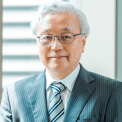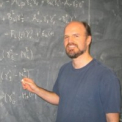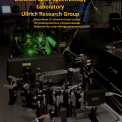Describing and predicting real-world phenomena is an important task for physics. Not only in the microscopic world, but also in the macroscopic world there are still many non-trivial phenomena waiting to be challenged by physical sciences. Active matter is a population of self-propelled particles that convert free energy into motion or force. Examples include flocks of birds, populations of biological cells, cell cytoskeleton, self-driven colloidal particles and vibrated granular rods. Collections of those active particles exhibit solid, liquid and gas like behavior and beyond. A number of deep analogies exist between equilibrium statistical physics systems and active matter systems including phase transitions and macroscopic dynamics. In active matter systems, on the other hand, new macroscopic properties arise. The ordered state of a certain class of cell population closely resembles the order of liquid crystal molecules, but novel phenomena such as spontaneous condensation of cell population into topological defects. may explain the mechanism of morphogenesis in living organisms.
Events Calendar View
-
Departmental Colloquium
Nov 10, 2022
What is Active Matter?
-
Departmental Colloquium
Dec 1, 2022
Quantum Machine Learning and Quantum Simulation
In this talk, I'll first give an introduction to quantum machine learning and how one can trade quantum entanglement for data resources to get an experimental reduction in data resource requirements for quantum machine learning. I'll present a brief tutorial to give an idea of how quantum machine learning works and why this sort of tradeoff is possible. Then, I'll go on to show how quantum machine learning can be used to improve quantum simulation on near-term quantum computers showing some of our most recent results. Here, again, I'll focus on describing the structure of the problem to give the audience an appreciation of how the techniques work.
-
other
Mar 31, 2023
Georgia Science and Engineering Fair students visit the Department of Physics and Astronomy
Georgia Science and Engineering Fair students visit the Department of Physics and Astronomy, Friday, March 31, 2023, beginning at 6pm. The students will tour the Ultrafast Laser Spectroscopy Laboratory run by the Ullrich Research Group and the Plasmonic Metamaterials, Organic Opto-Electronics and Spintronics Laboratory run by the Nguyen group. Their visit is coordinated by Dr. Robin Shelton on behalf of the Undergraduate Recruitment committee and she can be reached for additional information.
Page 121 of 121, showing 3 records out of 723 total, starting on record 721, ending on 723




